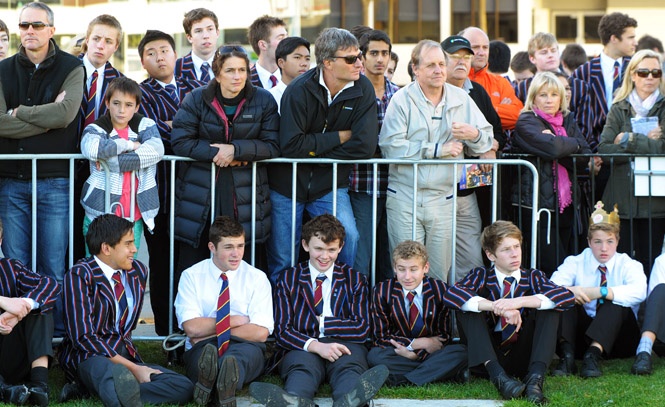- Introduction
- Research Methodology and Process
- Who are we Dealing With?
- In or Out!
- The Wish List
- The Rugby Player’s Pivotal Milestones
- The Start
- Mates
- Adults and Parents
- The Car Ride Home
- Side Lines
- Coaching
- Guidelines for Communicating with Teens
- Technology and Communication
- Injury
- Winning
- Training
- It’s Not All Doom and Gloom
- Half Game Rule
- In Their Own Words
- Solutions or More Problems?
- Conclusion
- Addendum
Side Lines

Young people see side-line behaviour (particularly adults) as a major issue that detracts from their enjoyment of the game. During our research they were actively open to solutions addressing the problem.
Teens believe side-line behaviour should be officially monitored. They even suggested punishing the offending supporter’s team to ensure spectators kept their behaviour in check.
Players feel it is getting too aggressive on the side-lines - ill-informed parents are hassling referees, nagging, complaining and are generally being too loud. They told us they hate being critiqued and coached from the side-line.
We need to educate parents and supporters on acceptable side-line behaviour, and that it is not OK to yell advice or criticism from the side-line - no matter how well meaning it is. It’s confusing for the players, degrading to the coach and the teens don’t like it!
What is a teen meant to do when parents on the side-line are yelling “Spin it wide, spin it wide!” when their coach has told them to keep it close and not to go wide? Who should they listen to?
“I reckon if the referee had a punishment for the team because of the parents, it might work.”
We asked teens on our teenage rugby website (www.randomrugby.co.nz) how far they would like their parents from the side-line – 1m, 3m, 5m or 3km – guess which one got the most votes. Yep, 3km.
How many people on the side-line have you heard yelling “Get onside Tim, tackle him Tim!” Most of us will agree it’s not particularly negative, some would say it’s constructive. But our teens have told us it’s confusing, degrading and they don’t want it.
If Tim is the winger and their son is the hooker - you might as well have told your son he’s useless. They don’t want their mate’s Dad on the side-line yelling at them so why would they want their own Dad yelling at their mate? The teens made this crystal clear.
They even had some solutions:
• Get the coach to define acceptable side-line behaviour to parents and spectators
• Ask the loud parents not to come to the game
• Red card parents or red card team of the offending parents
Some of these may seem a little impractical but it does demonstrate quite clearly how seriously the teens see this issue.
“When I first started playing it was embarrassing. In the under 11’s I started to muck up quite a bit and it was quite embarrassing mucking up all the time, and my parents would say ‘he’s not that great’ and in my last year of under 13’s I started to take it more seriously.”
The teens also had some theories on what helps and what doesn’t on the side-lines. Roping on the side-line for example, doesn’t stop parents from moving forward, it just encourages louder yelling.
They suggested a charter outlining acceptable side-line behaviour that parents, coaches and teammates would all agree on and sign. We’ve heard positive things from teams who have introduced similar charters at their clubs. It is helpful to have an agreement to refer back to throughout the season as necessary.
Finally, teens think schools and clubs need a representative to police the side-lines. This enforcer of side-line behaviour would be voted in and his/her role and responsibilities made known at the start of the match by the referee, so everyone is aware of what is expected of them.
Teens don’t want to be distracted by what’s happening off the field. All they want is to be given the skills and permission to live out their alter ego on the field and lose themselves in the simplicity of the game.